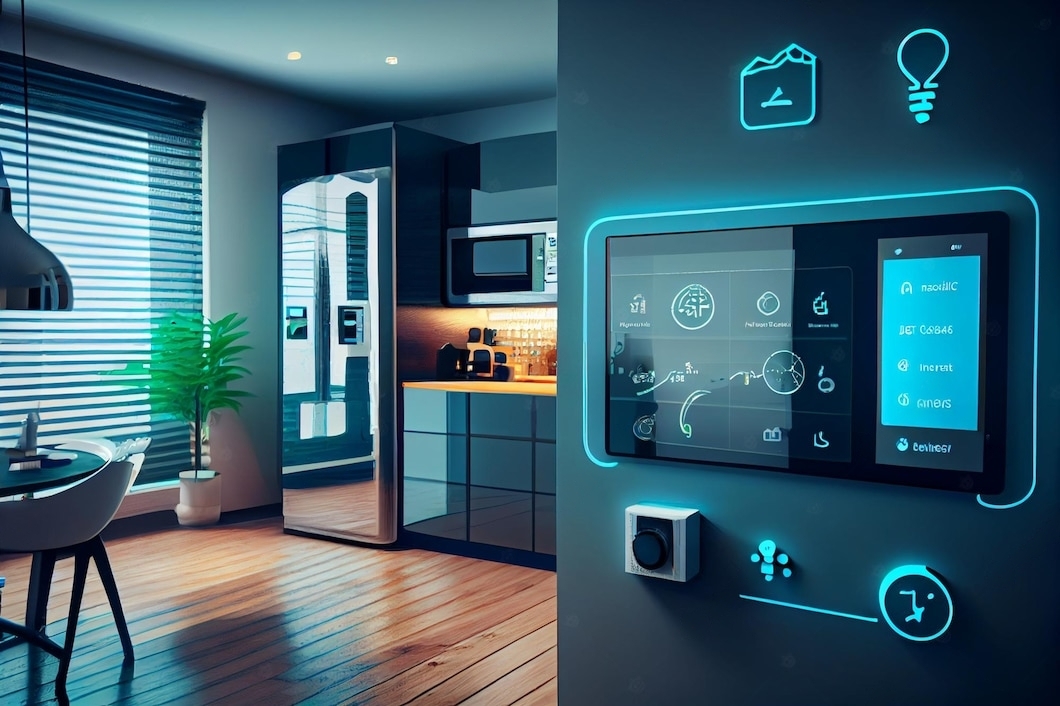Introduction:
The UAE’s real estate market is witnessing a remarkable transformation with the rise of smart homes. As technology continues to advance, homes are becoming more connected, intelligent, and efficient. In this article, we will explore the concept of smart homes and how they are shaping the real estate landscape in the UAE. We will delve into the advantages of smart home technology, its impact on convenience and energy efficiency, and highlight properties that offer these cutting-edge features.
- What are Smart Homes?
Smart homes are residences equipped with integrated technology systems that allow for the automation and control of various functions. These functions include lighting, temperature, security, entertainment, and appliances. Smart home systems typically involve the use of sensors, connected devices, and intelligent algorithms to enhance comfort, convenience, and energy efficiency.
- Advantages of Smart Home Technology:
a. Convenience: One of the primary advantages of smart homes is the convenience they offer. Homeowners can control various aspects of their homes remotely through mobile apps or voice commands. From adjusting lighting and temperature to operating home security systems, smart home technology provides unparalleled convenience and flexibility.
b. Energy Efficiency: Smart homes are designed to optimize energy consumption. Energy management systems can monitor and control lighting, heating, and cooling based on occupancy, time of day, or preset schedules. This helps reduce energy wastage, lower utility bills, and contribute to a more sustainable lifestyle.
c. Enhanced Security: Smart home security systems provide advanced features such as surveillance cameras, motion sensors, and smart locks. Homeowners can monitor their properties remotely, receive real-time alerts, and even grant access to visitors remotely. These security features offer peace of mind and improve overall safety.
d. Home Automation: Smart homes allow for seamless automation of routine tasks. For example, curtains can be programmed to open and close at specific times, or appliances can be operated remotely to save time and effort. This automation simplifies daily routines and enhances overall efficiency.
- Smart Homes in the UAE Real Estate Market:
The UAE’s real estate market has embraced the concept of smart homes, with developers integrating smart technologies into their projects. Several residential communities and high-rise towers are equipped with advanced smart home systems, catering to the growing demand for connected living.
a. Features and Integration: Smart homes in the UAE often include features like smart lighting, thermostats, entertainment systems, and voice-controlled assistants. These systems are designed to seamlessly integrate with each other, allowing homeowners to control multiple functions through a single interface.
b. Luxury and Prestige: Many luxury properties in the UAE now feature smart home technologies as a standard offering. These properties combine state-of-the-art architecture and design with cutting-edge smart features, providing residents with a luxurious and modern living experience.
c. Sustainability: The UAE’s commitment to sustainability aligns well with smart home technology. Smart homes help reduce energy consumption by optimizing resource usage. They integrate renewable energy sources, such as solar panels, and provide real-time energy consumption data to encourage eco-friendly practices.
Conclusion:
Smart homes are revolutionizing the UAE’s real estate landscape, offering residents a new level of convenience, energy efficiency, and security. With features like remote control, automation, and integration, smart homes provide an enhanced living experience. As technology continues to advance, smart homes will become increasingly common and accessible across the UAE. Whether it’s luxury properties or sustainable developments, the integration of smart home technology is transforming the way we live and shaping the future of real estate in the UAE.

